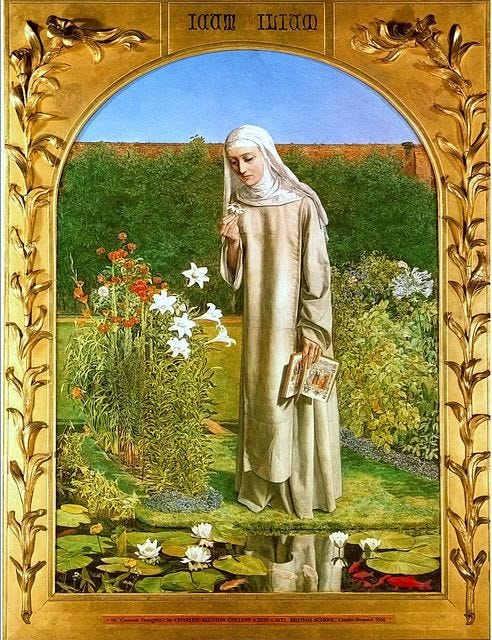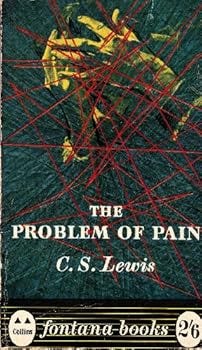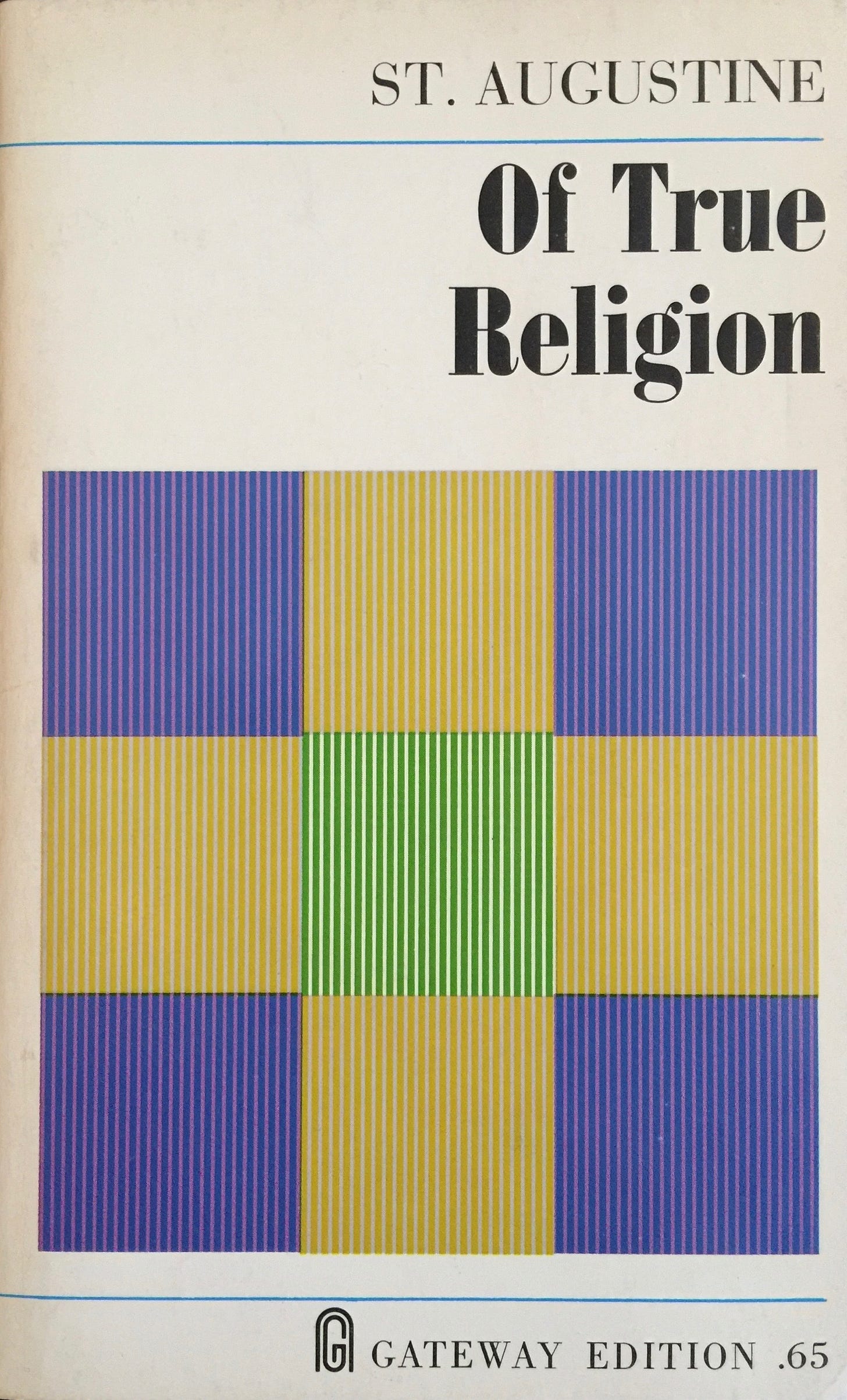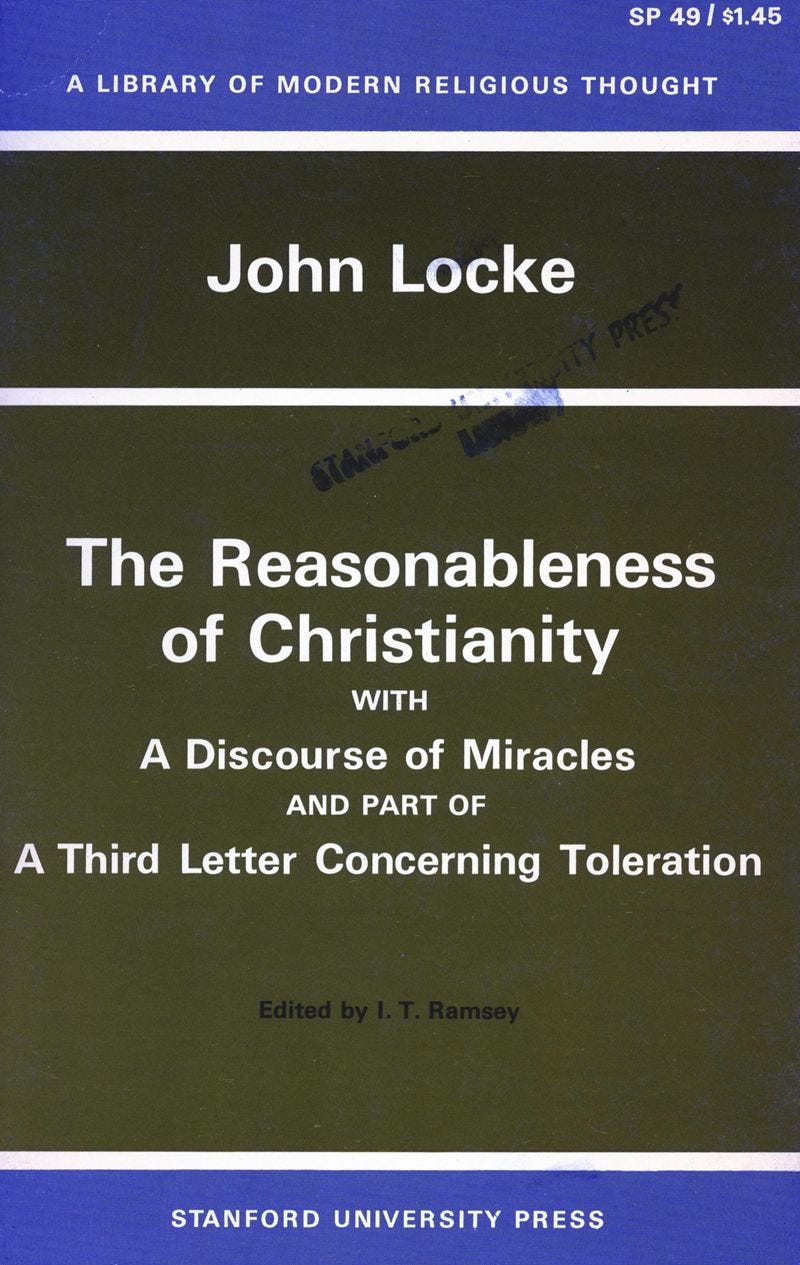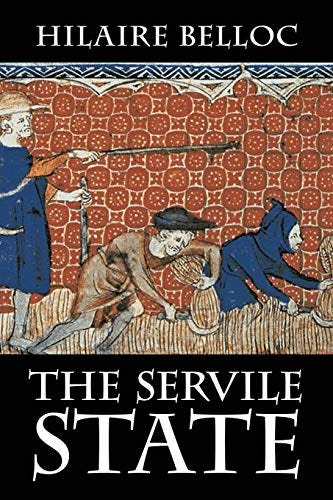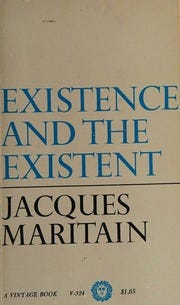Five Thought-Provoking Books for Christian Philosophers ♱
Some recommendations for those in search of interesting, older Christian works
There have been a number of Christian philosophical works that have reached the status of mainstream philosophy. Lewis’ Mere Christianity, Kierkegaard’s Fear and Trembling, and Descartes’ Meditations on First Philosophy are well-known books within the philosophical sphere. These are imperative works for literary Christians to read, but we sometimes want to see some refreshingly new names and titles to us. This list is for the (Christian) philosopher in search of less popular works and philosophers.
1. The Problem of Pain, by C. S. Lewis (1940)
“God whispers to us in our pleasures, speaks in our conscience, but shouts in our pain: it is His megaphone to rouse a deaf world.” C. S. Lewis, The Problem of Pain
C. S. Lewis, best known for his Narnia series and religious works like Mere Christianity and The Screwtape Letters, was a British author of fiction and Christian apologetics. He was a Christian revert from atheism, persuaded by a lengthy, thoughtful discussion with J.R.R. Tolkien and Hugo Dyson. Lewis is perhaps the most famous Christian apologist in today’s literary sphere.
The Problem of Pain approaches one of the oft cited arguments against Christianity—many believe that it does not follow that a perfect and loving God should allow for pain to be experienced by His creatures. He presents many counterarguments against this notion. The faith of people of antiquity was not deterred by pain, long before the invention of painkillers and anesthesia. He poses that, as all things are possible under God, that that which is “impossible” is nonexistent; that being said, a world devoid of pain is impossible, so it does not even possess the potential to exist by Will. In Man’s moral compass, pain is situated at the extreme end of evil, of which it can hardly be reconciled as anything but the ontological antithesis of moral love. Under God, love and pain are not mutually exclusive metaphysical concepts. These are a few of the many points Lewis makes in this concise book.
Though C. S. Lewis doesn’t articulate his points with philosophical jargon, he displays his appositeness of abstract thinking and comparison. Suffering can be such a perplexing state of being that one cannot fathom its necessity. The same theme of coming to terms with the utility and purpose of pain is found in the Book of Job.
2. Of True Religion, by St. Augustine of Hippo (390)
“So if these men could live their lives again today, they would see by whose authority measures are best taken for man’s salvation, and, with the change of a few words and sentiments, they would become Christians, as many Platonists of recent times have done.” St. Augustine of Hippo, Of True Religion
St. Augustine of Hippo was a Christian philosopher from the North African region of the Roman Empire. He is best known for his Confessions, which has served as a source of consolation for Christians and others who wish to understand the nature of sin. He came from an upper-class family and was raised as a Christian. In his youth, he converted to Manichaeism, before reverting to Christianity. He was a professor of rhetoric before he became a writer and Bishop.
Manichaeism was a newer religious phenomenon in the Roman Empire in St. Augustine’s youth. It alleged to be the syncretic religion. It combined many popular faiths into one mythical conglomerate. Manicheanism held that the metaphysical world was in a constant war, with good and evil being its belligerents. It is a gnostic faith, meaning one requires mystical knowledge of salvation (or gnosis (γνῶσις), the Greek word for “knowledge”), rather than grace, to be saved. It is a dualistic faith; it upholds that God, a being of light, is in contention with Satan, a being of darkness, for the World, which came after their existence. Manicheans consider Jesus a deity and prophet—a deeply heretical belief. Manicheanism is considered a Christian heresy because it purports to pertain to Christ but denies the Old Testament, the Acts, and Jesus’ humanity, among many other negations.¹
Of True Religion, written three years after his baptism, refutes the tenets of Manichaeism. He acknowledges that it appeals to many people with its idea that evil is a strong power in contention with God, but it is ultimately refutable through the Bible. He wrote that sin doesn’t affect Man involuntarily, because all sin is voluntary by nature. It also defends that Christianity is the true philosophy, as well as the true religion. He reasons why God should be one supreme Being and not a division of powers amongst manifold deities.
This treatise is an early work in his path of Christianity, but it showcases his expertise as both a theologian and master of rhetoric. The ancient greats believed in the necessity of studying elocution and rhetoric, from Aristotle to Augustine. Works such as this prove that rhetoric is an essential subject of study for philosophers and Christians alike.
“When the body perfectly obeys the soul and the soul perfectly serves God, not only is there no evil substance, for that there can never be, but, better still, substance cannot be affected by evil, for it can be so affected only by sin or its punishment.” St. Augustine of Hippo, Of True Religion
3. The Reasonableness of Christianity, by John Locke (1695)
“Though the works of nature, in every part of them, sufficiently evidence a Deity; yet the world made so little use of their reason, that they saw him not, where, even by the impressions of himself, he was easy to be found.” John Locke, The Reasonableness of Christianity
John Locke is remembered as one of the great empiricists of the Western philosophical canon, alongside figures like David Hume and Francis Bacon. One of his most familiar concepts is tabula rasa, a term derived from the Latin “blank slate” to describe the concept that all knowledge is derived through the senses as opposed to possessing any presuppositions and innate intellectual traits. He hailed from a Puritan background, studying philosophy at the Christ Church sector of Oxford University.
Though Locke’s theories stemmed from certain tenets of Christianity, such as Imago Dei influencing his beliefs in equality, The Reasonableness of Christianity is far more overt about his own faith. He explained that the purpose of publishing this work, though he did it anonymously in his lifetime, was to “convince … men of the mission of Jesus Christ, [and] make them … see the truth, simplicity, and reasonableness, of what he himself taught, and required to be believed by his followers.”² Locke explains that all aspects of the Bible can be rationalized as veritable through reason, and that faith and reason are not mutually exclusive. Belief in Jesus is reasonable because he fulfilled the miracles and prophecies of the Old Testament.
Locke was not the most orthodox Christian, but he was certainly a believer of Christ. On his deathbed, he read the Bible aloud to those who wished to see him for the last time, proclaiming his faith in Christ Jesus. His philosophy, founded on his Christian values, contributed to the philosophical concepts of empiricism, liberty, and natural rights. He defended the principle of being saved by grace through faith alone, which was a highly debated question during the Enlightenment, especially with the Protestant Reformation.
4. The Servile State, by Hilaire Belloc (1912)
“That arrangement of society in which so considerable a number of the families and individuals are constrained by positive law to labour for the advantage of other families and individuals as to stamp the whole community with the mark of such labour we call The Servile State.” Hilaire Belloc, The Servile State
Hilaire Belloc is an interesting tragic love story. He fell in love with a girl named Elodie, whom he had met through his sister. She was an American on a European excursion with her mother and sister, and he was a native Frenchman with a tender heart. They related on their Catholic faith and literature, leading him to fall in love with her. When she returned to the United States, he followed. He sold all of his belongings to be able to afford the commute across the Atlantic Ocean by steamboat and across the States by train. Unfortunately, his funds depleted partway through the country; he completed his journey on foot, compensating those who lent him shelter by composing poems and sketched portraits for them. When he completed his journey from coast to coast and met Elodie at her doorstep, she turned him down because of her family’s plans for her to enter the convent. Her mind changed a few years later when she left the convent, and they were wedded six years after his initial trek to her home. Devastatingly, he was widowed early, and he spent the rest of his life in mourning.³
A devout Catholic and prominent Christian apologist, Belloc composed many religious works. He is most famous for his Cautionary Tales for Children, a collection of silly tales about people who misbehaved and faced almost ridiculous consequences. His serious works pertained to Christian topics, such as the crusades, heresies, and the Reformation. The Servile State is an economic and political treatise that criticizes both socialism and capitalism. He believes both paths lead to the same destination, the servile state, which subjugates the masses into labor out of legal compulsion. He interestingly attributes the rise of capitalism with the Reformation, explaining that the British monarchy under Henry VIII usurped the great economic power of the monasteries when it broke away from the Catholic Church. He criticizes capitalism’s most popular “solution”, socialism, as it erroneously faults the existence of private property. Instead, he supposes a different solution. G. K. Chesterton and he were pioneers of a traditionalist economic theory which they named distributism, a call to return to the Christian era of Europe in which the means of production was not concentrated within the State or by economic giants, but rather widely dispersed amongst many small-scale businesses and establishments.
Though I tend to lean in favor of capitalism when compared with socialism, this is a fascinating text to me. It proposes a different solution and a return to the past, somewhat similar to the likes of René Guénon and Julius Evola. He diverges from them in his republican views, though he was partial to monarchism later in life. For Christians interested in what other Christians proposed as the ideal economic system, it is worth studying the tenets of distributism.
5. Existence and the Existent, by Jacques Maritain (1948)
“Here we touch upon the original error that underlies all the modern existentialist philosophies. Ignorant of or neglecting the warning of the old scholastic wisdom, that ‘the act of existing cannot be the object of a perfect abstraction,’ there philosophies presuppose that existence can be isolated. They contend that existence alone is the nourishing soul of philosophy. … They call themselves philosophies of existence instead of calling themselves philosophies of being.” Jacques Maritain, Existence and the Existent
I have never seen Jacques Maritain discussed within the philosophical and Christian spheres, so I call for a revival of his name. He was born into a Protestant family, particularly on his father’s side, but declared himself agnostic. He studied philosophy at the Lycée Henri IV and the Sorbonne. It was there he met his future wife, Raïssa Oumançoff. Both were deeply disquieted by the present philosophy of France; nihilism, materialism, and existentialism fomented a bleak outlook of one’s purpose and future. The couple declared a grim vow: if they could not find a reason for hope in place of the rampant pessimism of their day, they would both commit suicide.
God was not far. The two attended the lectures of Henri Bergson, the chair of philosophy at the Collège de France. They were moved greatly by his rebuttals against the staunchly positivist, anti-metaphysical state of the West. With their hopes renewed, they abandoned their vow, converted to Catholicism, and got married.⁴
Maritain wrote plenty of works addressing different branches of philosophy, from political philosophy to aesthetics and epistemology. He is accredited with the revival of St. Thomas Aquinas in the twentieth century, as he heavily studied Thomism and infused it with his philosophy. In Existence and the Existent, he argues that true existentialism—a Christian existentialism—originates from Thomism. He contests the atheistic existentialism of Jean-Paul Sartre, whose philosophy purported that, in a reversal of Aristotelian thought, existence preceded essence. Maritain uses the term “existentialism”, but distinguishes his thought from other existentialist contemporaries by defining it as “affirm[ing] the primacy of existence, but as implying and preserving essences or natures and as manifesting the supreme victory of the intellect and of intelligibility”, as opposed to “affirm[ing] the primacy of existence, but as destroying or abolishing essences or natures and as manifesting the supreme defeat of the intellect and of intelligibility”⁵, which atheistic existentialism upheld.
Existence and the Existent is an interesting refutation of the atheist existentialist movement, of which Maritain’s native France was the heart. It is intriguing to read about a modernist Christian philosopher addressing the common philosophy of his age. Maritain is a fascinating philosopher for both his background and his publications.
There is definitely no end to the list of Christian philosophers, but we oftentimes do not see too many unfamiliar names. However, Substack doesn’t fail to introduce novel and uncommon works to others. I wanted to shed some light on some lesser-known works, as well as some lesser-known authors. This certainly will not be the last list I publish about Christian philosophy. I hope you learned something new from this list!
Bibliography:
“CATHOLIC ENCYCLOPEDIA: Manichaeism.” Www.newadvent.org, www.newadvent.org/cathen/09591a.htm.
“A Generous Reading of John Locke: Reevaluating His Philosophical Legacy in Light of His Christian Confession.” The Gospel Coalition, www.thegospelcoalition.org/themelios/article/a-generous-reading-of-john-locke-reevaluating-his-philosophical-legacy-in-light-of-his-christian-confession/.
Hilaire. “Dappled Things.” Dappled Things, 27 Apr. 2019, www.dappledthings.org/nonfiction/4391/hilaire-belloc-personality-and-paradox.
Web, Communications. “About Jacques Maritain.” Jacques Maritain Center, Jacques Maritain Center, 2023, maritain.nd.edu/about/about-jacques-maritain/.
Maritain, Jacques. Existence and the Existent. 1948.



